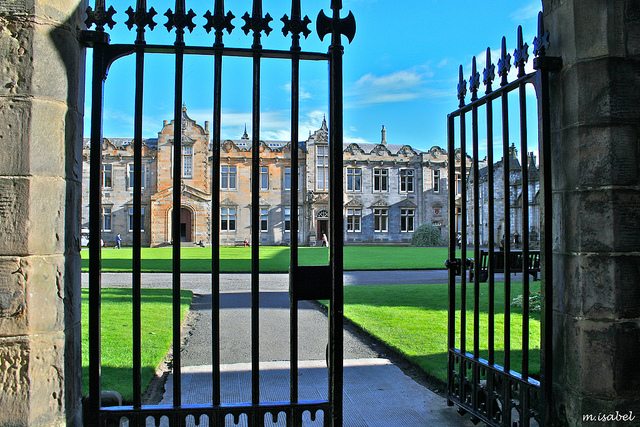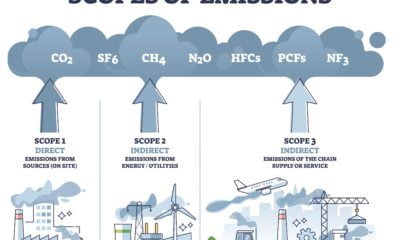

Energy
Three Scottish universities given £20m for low carbon heating projects
The Scottish government will give three Scottish universities £20 million to finance low carbon heating projects that will help the country reach its greenhouse gas emission reduction targets.
St Andrews, Strathclyde and Stirling universities will be the three to benefit, with the government hoping that their work will inspire other bodies to start work on similar projects.
Prince William’s former university, St Andrews, will receive £10 million for a wood-fuelled biomass project at Guardbridge in Fife. The hot water produced by the plant will be pumped four miles underground to heat and cool the university’s laboratories and residences.
Meanwhile, Strathclyde University will receive £8 million for a combined heat, power and district energy network, which will serve not only Strathclyde’s campus but also major energy users in the area.
The final £2 million will go to Stirling University for the development of a combined heat and power plant in its main campus.
“Today’s announcement further underlines both the value of our universities in leading research and innovation, and Scotland’s ambitions for low carbon energy,” said Scottish education secretary Michael Russell.
“Investment for these three universities will not only contribute to reducing our carbon emissions, their work will offer other bodies the opportunity to learn from their work, develop their own projects and further enhance Scotland’s global reputation in this area.”
Environmental campaigners have also welcomed the investment, saying that it could have a massive impact
“Heating Scotland’s buildings and water makes up almost half our total carbon emissions, yet only around 3 per cent of that heating is currently renewable,” said Gina Hanrahan, Climate and Energy Policy Officer at WWF Scotland.
“For too long heat has been the forgotten part of our energy mix, but it’s an area we need to see strong action on from the Scottish Government if we’re to tackle climate change and insulate our buildings from rising energy costs and volatile fossil fuel markets.
“Learning from these kind of projects will help to build investor and consumer confidence in low carbon heating.”
Photo: llunàtica81 via flickr
Further reading:
Eight renewables projects given go-ahead in ‘green energy investment boom’
Scotland gives green light to world’s ‘third largest’ offshore wind farm
Six months to go: the Scottish referendum and sustainability
NHS could save up to £150m through energy efficiency measures
Green Investment Bank pledges £50m funding for energy efficiency






























